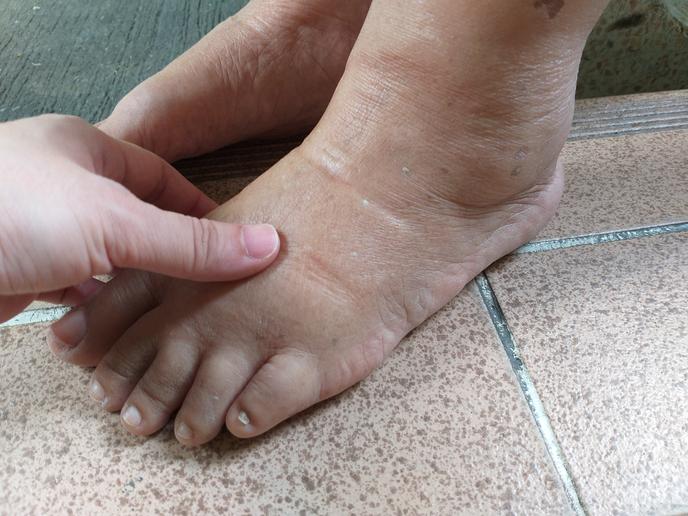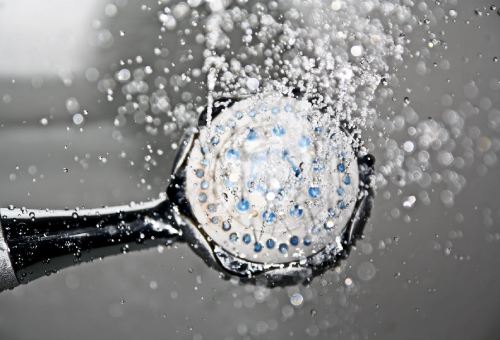The four most common causes by which you retain liquids
Feet that refuse to fit into shoes, legs that bulge like those of a Michelin doll, the relentless cellulite, bags under the eyes that add years to the face, a bulging belly that we refuse to recognize as our own . They are the areas of our body that seeks liquid to stay. What appears is surely familiar to us: fluid retention.
The process is known as edema, which is the accumulation of fluid in the space between the cells of the tissues and in certain cavities of the body. "It manifests with a sensation of swelling or inflammation of the tissues that are under the skin and is usually seen especially in the legs, arms and abdomen, observing an increase in its usual size", explains Noelia Bonfanti, nutritionist and Doctor of Science of Physical Activity and Sport. The skin can look stretched or shiny, and pressing it for a few seconds leaves a kind of dimple on it. These are the most common reasons why it happens.
Because you go too far with salt
It gives flavor to food, but going too far hurts the heart: when this organ stops pumping effectively, blood pressure is altered, causing retention and, in In the most severe cases, it causes heart failure and respiratory problems. Limiting the amount of salt can help prevent these symptoms. According to the Spanish Heart Foundation (FEC), it should not be added to any dish. Instead, he recommends using herbs, spices, lemon, vinegar and oils flavored with garlic, oregano or chilli if we want to enhance the flavor of the food.
The main source of salt is table salt, but Bonfanti specifies that "we should not only pay attention to the salt we add to our menus at home, but also to the salt that is part of our food, especially those produced industrially." Special attention must be paid to the labels of soft drinks, breads, cookies, sausages, cheeses, smoked and canned foods. "A healthy, varied diet, rich in fruits and vegetables, lean meats, whole grains, legumes, and natural dairy products is always a factor in preventing fluid retention," he clarifies.
Because you need more water

"Eating enough during the day is very important," says the expert. Above all, "if we do physical exercise and even more if it is practiced in hot and humid conditions," she adds. Physical activity is not only necessary to avoid health problems such as obesity, overweight, cardiovascular diseases and diabetes, but also fluid retention. "It has a lot to do with both its development and its prevention and treatment," says Bonfanti. The FEC recalls that to avoid this it is necessary to exercise regularly, keep your legs elevated and avoid sitting for long periods of time.
Because of your hormones
Retention is much more common in women; female hormones play an important role in its development. During the months of gestation, the body retains more water than normal due, above all, to hormonal changes and being overweight, but it is something that resolves itself after delivery. Attention: if the inflammation is sudden and appears accompanied by headache, vomiting or vision problems, it could be a sign of preeclampsia, a specific disorder of pregnancy in which high blood pressure appears, and which requires immediate medical attention. And the diet during pregnancy can influence the following months. Eating dinner late, for example, triples the chance of retaining fluids up to 18 months after delivery, according to research from the KK Women's and Children's Hospital in Singapore.
In female retention it is also one of the more than 150 possible symptoms associated with premenstrual syndrome. Bonfanti highlights mastalgia (painful breasts), abdominal distension, transient weight gain, and decreased amount of urine produced as very characteristic. "Estrogens favor fluid retention and breast tension in the second phase of the cycle, when there is not enough progesterone to counteract this estrogenic effect," Bonfanti points out.
Due to health problems
When you retain fluids, it is also possible that one of the pathways that help keep fluids at healthy levels is failing. "It can be a consequence of the presence of certain serious pre-existing pathologies such as congestive heart failure, kidney disease or liver cirrhosis," the expert clarifies.
Another reason is a malfunction of the lymphatic system, which defends the body against infection. This is, in fact, one of the most frequent causes. The kidneys are a powerful filter that allows access to the bloodstream of everything that can be reused and eliminating waste through urine. If there are problems, this process fails and the fluid remains in the body.
Swelling can also be part of an infection or allergy. The immune system detects an invader (bacteria or allergen) and attacks by releasing histamine, which causes the spaces between the cells of the capillary walls to widen to allow the passage of infection-fighting white blood cells. Sometimes fluid leaks from the capillaries into the surrounding tissues causing temporary swelling. Joints affected by some types of arthritis also tend to swell.
To avoid it: fruits, vegetables and movement
Whatever the cause, studies agree on diet and physical activity as preventive factors. Bonfanti indicates that, although the vast majority of fruits and vegetables can be considered useful, he especially advises "those that are richer in antioxidants and anti-inflammatory substances such as red berries, citrus fruits, pineapple, dark green leafy vegetables, asparagus , beetroot or tomato". And he adds: "We must avoid eating red meat and opt for low-fat white meats such as skinless chicken or turkey breast, and fish, both white and blue." They are very specific, but effective recommendations to re-identify the image of the belly that the mirror returns to us as our own.









3985